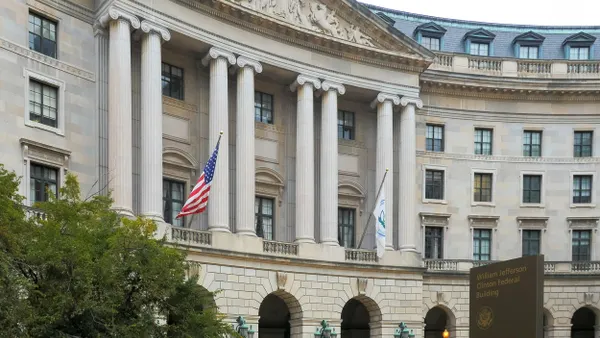Dive Brief:
-
A New Jersey General Assembly committee voted in favor of the long-debated "Smart Container Act," which would impose a 10-cent deposit on containers smaller than 24 ounces and a 20-cent deposit on larger ones to include those with juice, soda, sports drinks, water, beer, and wine. A2281, sponsored by Democratic Rep. Valerie Vainieri Huttle, would require beverage retailers to take back the empty drink containers.
-
A proposed container rule has been reviewed for the past five legislative sessions, with the newest version amended to direct unredeemed deposit money toward initiatives that aim to limit lead exposure in schools and homes.
-
A2281 is opposed by the beverage industry and the Association of New Jersey Recyclers, though the Sierra Club and the Container Recycling Institute support it. The rule has no set date for the complete chamber’s vote.
Dive Insight:
Legislators have been kicking around the bottle law for some time — nearly three decades, according to NJ Spotlight, and it has gotten bounced back repeatedly, making it to the Assembly Environment and Solid Waste Committee and no further.
Similar legislation has passed in some states; in fact Oregon adopted its bottle law in 1971. However, by late last summer, redemption numbers were down to 68%. Massachusetts may eliminate its redemption system altogether but is considering a replacement.
"This bill is win-win-win for New Jersey. It cleans up lead, gets rid of litter and promotes recycling," Jeff Tittel, director of the group, said in a statement. He added that currently, only half of New Jersey’s plastic bottles are recycled.
On the other side of the fence, Marie Kruzan, executive director of The Association of New Jersey Recyclers told Resource Recycling, "This proposed bill would negatively impact all of the current curbside recycling programs across New Jersey."ANJR has historically opposed bottle bills for this reason and is opposed to this one as well."
The deposit proposal’s supporters said it is projected to raise approximately $30 million a year.










